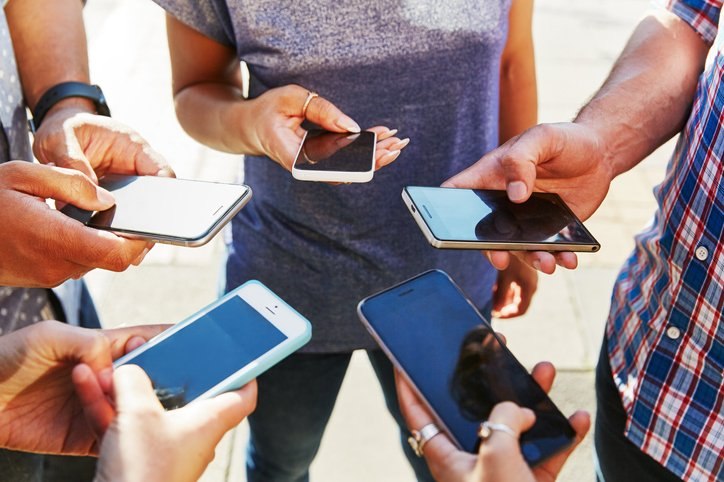
Global: The activities where people are most distracted by their smartphones
New YouGov data shows that on average, over half (56%) of consumers across 18 global markets say they look at their smartphones very or fairly often in bed before going to sleep. The practice of “revenge procrastination” – where people use their devices late at night to compensate for a day spent at work or taking care of others – is well-documented, and a portion of consumers even say they often look at their phone when they wake up in the middle of the night (24%). But the bedroom isn’t the only area where some people are sneaking opportunities to look at their phones.
For example, three in ten (31%) say they use their devices at dinnertime, while two in ten (21%) say they do so while eating out with friends and family or while socialising at a bar (20%). A similar proportion say they do so frequently while spending time with their children (18%), or while on a date with either a current or prospective partner (15%). So for a portion of the global public, phones are dividing attention during possible bonding moments.
We’ve already talked at (perhaps unnecessary) length and detail about the practice of using phones on the toilet, so let’s not get bogged down in that again – especially since there are plenty of other activities where people are distracted by their screens. For example, a third (33%) say they often look at their phone at work, and a quarter (23%) say they do so while on video calls. And for some people, a phone is a distraction from a distraction: one in five global consumers (20%) say they second screen while playing video games.
Explore our living data – for free
YouGov Surveys: Serviced provide quick survey results from nationally representative or targeted audiences in multiple markets. The data is based on surveys of adults aged 18+ years in 18 markets with sample sizes varying for each market. All surveys were conducted online in May-June 2023. Data from each market uses a nationally representative sample apart from Mexico and India, which use urban representative samples, and Indonesia and Hong Kong, which use online representative samples. Learn more about YouGov Surveys: Serviced.